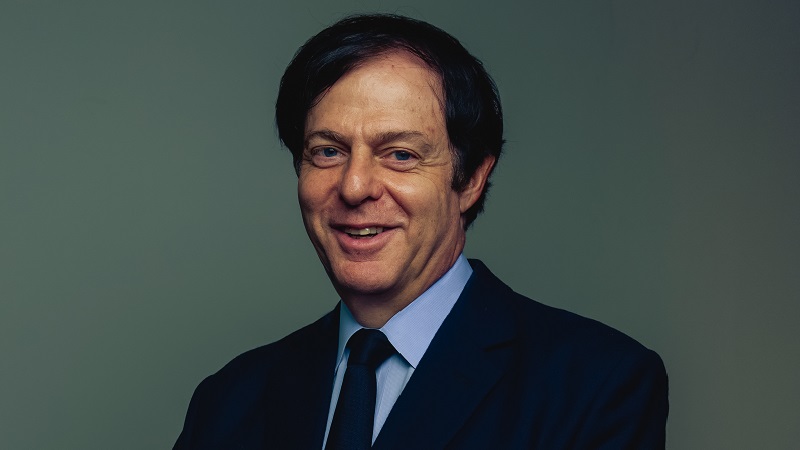Vodafone’s plans to slash its dividend threatens to swipe 1.11% off the average UK equity income fund highlighting the concentration risk in yield of the FTSE All Share.
The telecom giant plans to slash its dividend 40% due to its unsustainable leverage and the cost of 5G rollout.
Neptune Investment Management chief executive Robin Geffen (pictured) sold out of Vodafone last year but says more than half of funds in the IA UK Equity Income sector hold the stock, which on average accounts for 5.42% of their overall yield.
In the FTSE All Share, Vodafone’s dividend cut will reduce the yield by 1.65%.
Dividend cover lower down the market cap spectrum
Within the IA UK Equity Income sector, an index fund – Vanguard FTSE UK Equity Income – has the largest allocation to the stock with 3.70%, alongside the SLI UK Equity High Income fund, which has the same allocation, according to FE Analytics.
Aberdeen Standard Investments did not comment on its allocation; however, Gresham House fund manager Ken Wotton, whose UK Multi-Cap Income fund had one of the largest weightings to Vodafone, revealed he sold the stock after the dividend cut.
Wotton says they are looking for income further down the market cap spectrum “where dividend cover is higher and there is good scope for dividend and capital growth”.
He highlights Vianet, Strix and Games Workshop as smaller stocks that have maintained or positively surprised on dividends in recent years.
Canary in the coalmine
Geffen dropped Vodafone from his £253.7m Income fund in 2018 due to concerns about debt-fuelled expansion, potential disruption and changing pricing structures. The equally-weighted fund includes Standard Life Aberdeen, Sage Group and Anglo American among its holdings.
However, Geffen says this is not a company-specific problem.
“We believe Vodafone’s announcement should be viewed as canary in the coalmine moment for UK equity income investors and we expect many other supposedly ‘safe’ UK dividend paying companies to follow suit as a result of falling levels of dividend cover.”
Tobacco majors Imperial Brands and British American Tobacco are also at risk as well as major utility stocks, such as BT, he reckons.
Dividend sustainability
The plight of Vodafone highlights the importance of looking at dividend sustainability, says Quilter Investors portfolio manager Helen Bradshaw.
“Capital intensive companies that are forced to use the bulk of their free cashflow in order to sustain a dividend means there is very little room for error,” Bradshaw says. “And in an environment with a number of headwinds to the economy, this is something to be mindful of.”
While the yield on the FTSE has been “remarkably” resilient over time and is benefiting from the return of dividend growth in the banking sector, she says it is important to diversify globally, even considering areas such as emerging markets, which have not traditionally been a major source of income.
She points to Wells Fargo EM Equity Income as an example.
Chase de Vere research manager Justine Fearns says investors concerned about dividend cuts should look for a fund focused on high quality companies that have the ability to deliver sustainable dividends that grow over time – even if this typically results in a lower income than some sector peers.
The soft-closed Evenlode Income fund is a good example of this approach, Fearns says, although its Global Income fund, which is currently just £292m in assets compared to £3bn in the flagship fund, is run on the same basis. She also points to Unicorn UK Income, which invests primarily in small and mid-cap stocks, plus BMO Responsible Income – which holds 2.90% in Vodafone.
“The responsible funds have a more concentrated universe but sometimes bring sector diversification to a portfolio,” she says.
BMO Gam did not wish to comment on the fund’s holding in Vodafone.
The benefits of dividend cuts
Fearns adds: “However much we don’t want dividend cuts to happen they can sometimes just be good management to get a company back on track.”
Rathbone Multi Asset Strategic Income Portfolio fund manager David Coombs says reinvestment that leads to sustainable dividends is worth more to the investor than short-term, high nominal yields.
“If your payout ratio or your dividend is too high then ultimately you risk your competitive edge,” Coombs says.
“But cutting the dividend is only one side of the coin; you must communicate to shareholders why it makes sense. The problem is – and we saw this with Vodafone – the market punishes management teams for doing so. And any CEO who is paid on share price performance will no doubt have one eye on this. After all, turkeys don’t vote for Christmas.”











